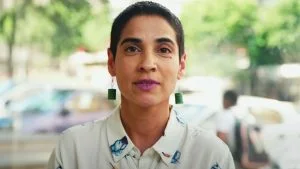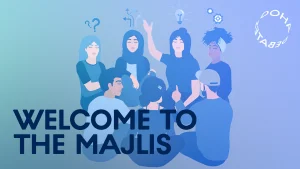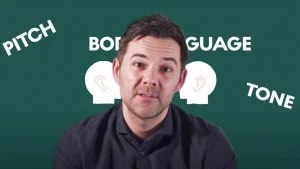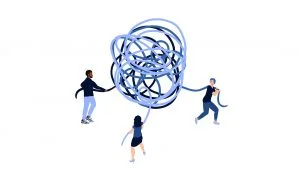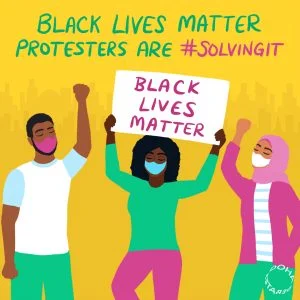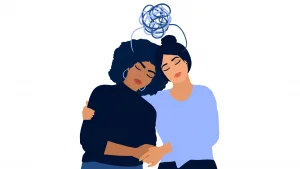
Deep Dive: Introduction
How do we create space — emotionally and intellectually — to listen to other points of view and experiences? How do we share our own ideas without fear or judgment? And how can these questions help us to view problems systemically, in all their complexity? This Deep Dive Introduction offers a selection of our resources and activities to help you get started and is designed to guide your engagement with any Doha Debates production, be it a live debate, a podcast or other media as you explore complex global issues. Each lesson also includes links to other related Deep Dive learning materials from our Better Conversations and Systems Thinking modules.
01. Dear World
#DearWorld, we need to talk
Watch the Dear World video and explore your interests and curiosities.
- What two or three statements touched you the most and why?
- Choose from among the statements in the video and decide what you can do to be 10% more, or 10% less _______?
- What global issues are of most concern to you?
- Now explore the various topics available on the Doha Debates website and decide which productions on complex global issues are most relevant to your interests or topic of study.
- What themes came up the most in the 10% more/less activity? How does this feed into the selection of the complex global issue for exploration?
- Now that you know where your curiosities lie, select a topic from Doha Debates, the Course Correction podcast or other Doha Debates productions to focus on throughout the lessons in this module.
Full lesson plan for educators: Dear World
02. Welcome to the Majlis
Welcome to the Majlis
Try our Better Conversations module to further develop communication and social-emotional skills while in the Majlis.
Explore our Systems Thinking module to further develop problem-solving, critical thinking and global competencies.
Watch the short video introducing the Majlis, an enduring practice for seeking common ground in situations of conflict. Respect for diverse world views and consensus-building are the goals in the Majlis-style debate.
Establishing community norms can help to build the Majlis, an inclusive place for dialogue, consensus-building and problem-solving.
- Think about a group discussion in your experience that went particularly well. What made that discussion successful?
- Based on that experience, brainstorm three to five norms you would suggest for a group discussion setting. Share among peers and discuss which ones to keep, which overlap, and which might not be necessary or important.
- Once you decide on the list of norms, decide what should be done if someone goes against one of them.
- Why is it useful to have community norms for this sort of work?
Full lesson plan for educators: Set the Tone for the Majlis
03. Prepare
How to get along with other people
Before engaging in a conversation or Majlis-style debate about a complex global challenge, it is helpful for participants to first consider their own worldview or perspective about the issue. In the Map Your Worldview Systems Thinking activity below, participants work individually to construct and reflect on a systems map for a complex challenge according to their worldview.
One way to prepare for your Majlis interaction is to think about what makes for good and bad communication. Watch the video and note the skills you need to engage with others about your topic.
Now create a KWL chart to brainstorm what you and your peers already know about the topic you chose upon entering the Majlis, what you want to learn, and then return to it during the REFLECT phase to note what you learned.
- It should have three columns; the first column heading is K (What we know), the second column heading is W (What we want to learn), the third column heading is L (What we learned).
- Brainstorm everything you and others know in the K column.
- Write down as many questions as you can about the topic in the W column.
- How would you go about answering the questions in the W column? What resources would you need to find the answers?
Full lesson plan for educators: Create a KWL Chart
04. Engage
Better Conversations: Change your approach
Watch the debate, listen to the podcast or watch Doha Debates production on the topic you chose.
- What surprised you about the production? What stood out to you?
- What did you learn from this production?
- How did watching or listening change what you already thought about the issue?
- What are the potential conflicts you imagine will arise when discussing this issue with peers?
- How will you change your approach to the discussion if things get tense?
Full lesson plan for educators: Watch or Listen
05. Reflect
In this activity, you will return to your KWL chart from the Prepare phase to gauge what you’ve learned and hopefully begin to see your topic systemically.
- Review the questions from the W column (what you wanted to learn) and reflect on those questions.
- Were all questions answered? Are you satisfied with the information? If any were not, what will you do to find the missing answers?
- How does what you learned about the topic fit into a systems thinking mindset?
- Review the K column (what you thought you knew). Identify and correct any misconceptions or assumptions.
- Complete this prompt: “I used to think… but now I know….”, and share your findings with your peers.
Full lesson plan for educators: Notice New Information
06. Act
In this activity, you will honor the expertise and efforts of local changemakers who are working on your chosen issue. You’ll be drawing inspiration from the #SolvingIt Series on Instagram, where community insiders are the real experts.
- Discuss these four ways that changemakers can leverage their local expertise to take action on a system according to the following guidelines:
- Direct action: working directly with the population you want to impact
- Indirect action: when you are not in the presence of the population you want to impact
- Advocacy: when you speak out on an issue and try to persuade others
- Research: finding and sharing new information about an issue
- Identify a #SolvingIt profile that you find inspiring. What are some examples of the four types of action that person brings to their community?
- Identify someone in your community who’s acting to bring change and how.
- Nominate that person, post your #SolvingIt nomination on Twitter and tag @DohaDebates and/or submit it on our site.
Full lesson plan for educators: #SolvingIt
07. Express Gratitude
It is now time to exit the Majlis. But before you go, remember to express gratitude for the contributions made by the people around you. Choose one positive contribution made by the person sitting to your right. Examples could be:
- Content related: perhaps the person made a good point or asked a good question.
- Related to the Majlis process: perhaps the person was skilled at building consensus within the group.
- Related to personality and demeanor: perhaps the person brought humor and light to the group discussion.
- How did you feel when expressing gratitude to someone else for their contribution?
- How did you feel when you heard someone express gratitude for your contribution?
- Why do you think this is an important step in the Majlis?
Full lesson plan for educators: Express Gratitude
